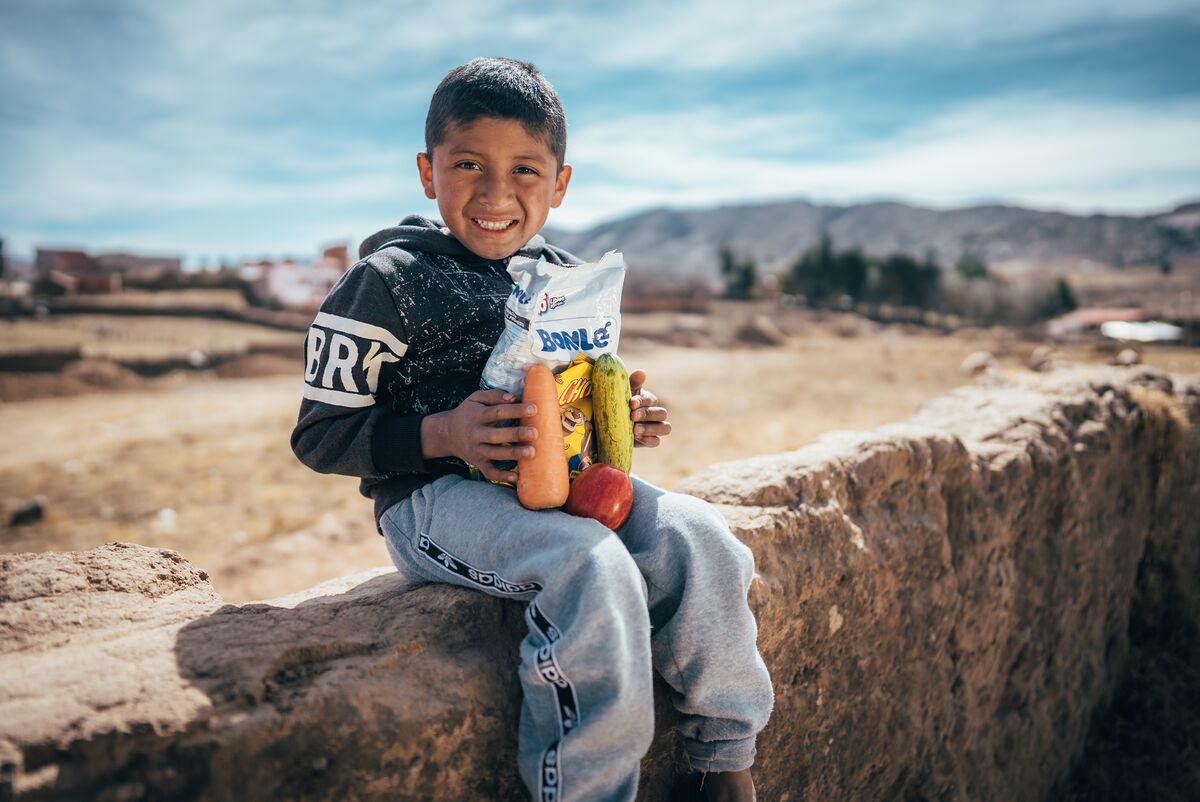Official Country Name: Plurinational State of Bolivia
Capital City: La Paz, Sucre
Population: More than 12 million Official
Languages: Spanish
Life expectancy: Male 61 years, female 67 years
Population with access to safe drinking water: 86%
Infant mortality rate: 20 deaths / 1,000 live births
Percentage of children under the age of 5 underweight: 3.4%
Adult literacy rate: Male 97%, female 91%
Religion: Approximately 70% of the population are Roman Catholic, 14.5% are Protestant, 15% are of another/unspecified religion or none.
Percentage living on less than $2.15 a day: 1.9%
Source: World Bank and International Religious Freedom Report, released in 2022 by the Office of International Religious Freedom, U.S. Department of State
The history of this region can be traced back to the 2nd century, when the Tiwanakan culture developed at the southern end of Lake Titicaca. In around 1450, the Quechua-speaking Incas entered the Bolivian highlands and added it to their empire until the Spanish conquest in 1525.
During most of the Spanish colonial period, this territory was called "Upper Peru" or "Charcas" and was under the authority of the Viceroy of Lima. Bolivian silver mines produced much of the Spanish empire's wealth. The city of Potosi, located on the Cerro Rico (Rich Mountain), was for many years the largest city in the Western Hemisphere.
As Spanish authority weakened during the Napoleonic wars, negative sentiment against colonial rule grew. Independence was proclaimed in 1809, but 16 years of struggle followed. Eventually, the Republic of Bolivia was established in 1825, named after Simon Bolívar, a Venezuelan soldier and statesman who played a central role in the independence movement.
Since then, Bolivia has experienced numerous coups, the last of which happened in 1978. Democratic civilian rule was established in 1982, but leaders have faced difficult social issues.
Art
Bolivian art includes Indian relics and other forms of folk expression. Like their Tiwanaku ancestors, Bolivians still create textiles by spinning and weaving. Different regions have individual styles.
Music
Each region in Bolivia has a distinct musical tradition. Music from the high plains of the Altiplano sounds sorrowful, while music in the warmer southern Tarija region is more cheerful. Dances such as the cueca, auqui-auqui and tinku remain important in popular culture.
Language
Spanish: Hola (Hello), Tchau (Goodbye), ¿Como está? (How are you?) Quechua: ari (yes), waliki (well), Askini punijuttata (Welcome), Imaynalla kasanki? (Hi, how are you?), Ripusani (used for Goodbye; literally means, "I am leaving."), Wuaj dia kama (See you later) Aymara: Imaynalla? (How are you?), Kamisaki? (Hello, how are you?), Yaqhaurkama (used for Goodbye; literally means, "I am leaving."), Waliki (See you later)
Sports and Games
Popular sports played in Bolivia include football, marbles, checkers, group games, outdoor racquetball, and basketball.
Typical Foods
Bolivians eat meat, rice, potatoes, shredded lettuce, hot sauce, soup, fruit, cheese, and milk.
The typical school year runs from February until November. Eight years are required for primary school; another four years are necessary to graduate from high school.
Education is highly revered and seen as a tool to help families improve their income and open the door to a better quality of life. Those educated enjoy better health care for themselves and their children and greater employment opportunities. However, unemployment is high, and many people are overqualified and underpaid.
For some Bolivians, completing their secondary education is a challenge, especially for women and indigenous minorities. In recent years, many have been working to provide students with economic opportunities that take into consideration indigenous cultures.
Approximately 70% of the population are Roman Catholic, 14.5% are Protestant, 15% are of another/unspecified religion or none.
Bolivia’s 2009 constitution declares that the church and state are separate and that all individuals are free to worship as they choose.
Schools have the option to teach religious education classes, including indigenous spiritual belief classes, with the aim of encouraging mutual respect between different religious communities. The law also requires all schools to accept students regardless of their religious affiliation.
Statistics from the International Religious Freedom Report, released in 2022 by the Office of International Religious Freedom, U.S. Department of State
